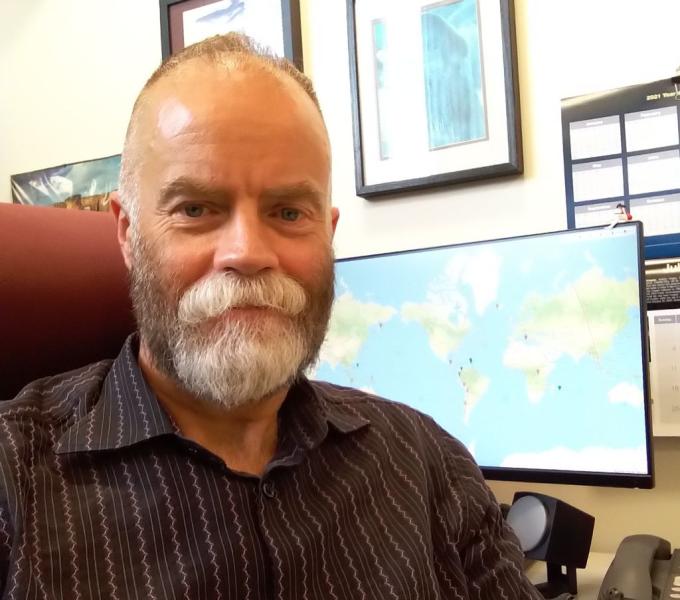Michael Ramsey is a Professor of Volcanology and Planetary Science at the University of Pittsburgh. He earned his Ph.D. in Geology from Arizona State University in 1996 and his B.S. in Mechanical Engineering from Drexel University in 1990. He is the director of the Image Visualization and Infrared Spectroscopy (IVIS) Laboratory, which is a state-of-the-art image analysis, thermal infrared (TIR) spectroscopy, and planetary science facility. His research interests are varied but focus on active volcanic process around the globe, instrument development, hazard mitigation, and planetary surface processes using TIR ground, laboratory, drone, and satellite data analysis. Using orbital or airborne remote sensing provides the synoptic data of a planet’s surface and allows integration of the laboratory and field-based studies into a complete picture. Ramsey created the multi-instrument URP sensor web system to detect new volcanic eruptions and monitor their hazards on Earth. He also serves as the PI for multiple planetary science studies ranging from volcanic and eolian studies of Mars to new projects applying lava flow models to data from Venus in preparation for planned missions later in the decade. The NASA Administrator appointed Ramsey as an inaugural member of the Earth Science Subcommittee in 2006, where he served for three years advising on matters of science implantation. He was a member of the 2018 National Academy of Sciences Decadal Survey for NASA Earth Sciences; and also currently serves as a science team member on three TIR NASA instruments: the Earth-orbiting Advanced Spaceborne Thermal Emission and Reflectance Radiometer (ASTER); the Mars-orbiting Thermal Emission Imaging System (THEMIS); and the airborne Mineral and Gas Identifier (MAGI). Recently, Ramsey was appointed to the science definition team for the future Surface Biology and Geology (SBG) TIR instrument, with that work taking him to the Jet Propulsion Laboratory every summer until the launch. Ramsey is currently working on mission proposal development to bring an operational NASA mission here to the University of Pittsburgh.

